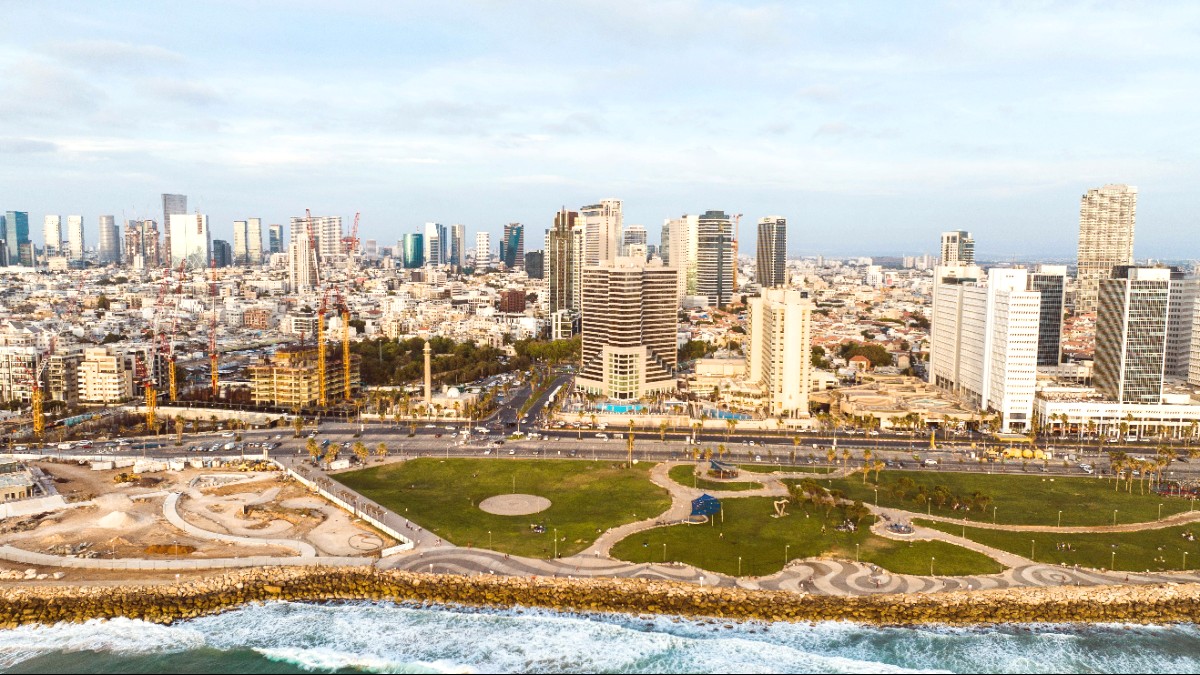
Israel
This city holds surprises, ready to show you its many sides.
Tel Aviv, "Hill of Spring," was established in 1909 as the first modern Hebrew city. Its origins were on the sand dunes north of the ancient port city of Jaffa. Jaffa has thousands of years of history, with evidence of continuous settlement dating back to the Bronze Age. This older city, now part of Tel Aviv, offers a look into the region's long and complex past.
The younger Tel Aviv developed quickly in the 1920s and 1930s, attracting many Jewish immigrants from Europe. Many of these immigrants were architects trained in the Bauhaus style, a modernist movement from Germany. They designed thousands of buildings, giving Tel Aviv its unique urban landscape, known as the "White City." UNESCO recognized this area as a World Heritage site due to its extensive collection of Bauhaus architecture. This blend of Jaffa's ancient charm and Tel Aviv's modern architectural heritage creates a striking contrast and a rich cultural narrative.
Tel Aviv has a mix of experiences. The city presents miles of sandy beaches along the Mediterranean, ideal for swimming, sunbathing, and water sports. Its dining scene earns praise, from street food stalls offering falafel and sabich to world-class restaurants. The Carmel Market displays a lively local atmosphere, with fresh produce, spices, and street eats.
Walk along Rothschild Boulevard to see Bauhaus buildings and enjoy lively cafes. Old Jaffa, with its stone alleys and historic port, provides a glimpse into the past. After sunset, Tel Aviv animates with a dynamic nightlife, with bars, clubs, and live music venues that suit all tastes. The city's liberal and open atmosphere welcomes everyone, creating a comfortable and exciting place to visit.
Sun, sand, and Mediterranean waves.
A marketplace for local tastes.
Architectural strolls and cafes.
Ancient port city with historic alleys.
Diverse bars, clubs, and music scenes.
Tel Aviv is often called the "White City" due to its extensive collection of Bauhaus buildings, an UNESCO World Heritage site. This architectural heritage, combined with the ancient roots of Jaffa, creates a city with distinct visual character and a sense of layered history.
The city's culinary scene goes from simple, savory street food to sophisticated fine dining. Explore local flavors at the markets or dine at a beachfront restaurant.
Tel Aviv's coastline defines much of its character. Days can involve relaxing on sandy shores, swimming in the Mediterranean, or engaging in various water sports.
Tel Aviv has both relaxing beach days and lively urban nights. Plan your days to experience both sides of the city.
Tel Aviv is often dubbed "The City That Never Sleeps" due to its lively atmosphere day and night. It is a city of contrasts, where ancient history meets modern innovation and a arts scene.
The city has a prominent LGBTQ+ friendly environment, attracting visitors globally.
Mediterranean climate with hot, dry summers and mild, wet winters.
Home to the UNESCO-recognized Bauhaus "White City."
A food scene from street food to fine dining.
Hebrew is the official language. English is widely spoken, especially in tourist areas, hotels, and among younger generations.